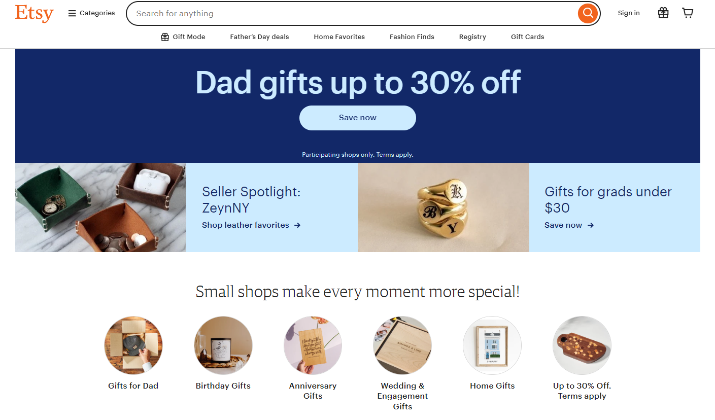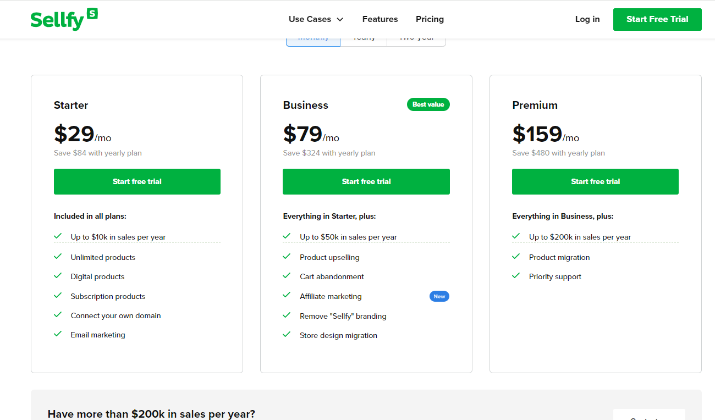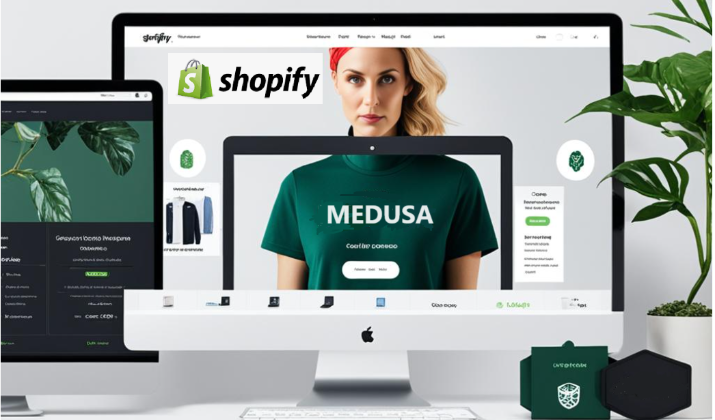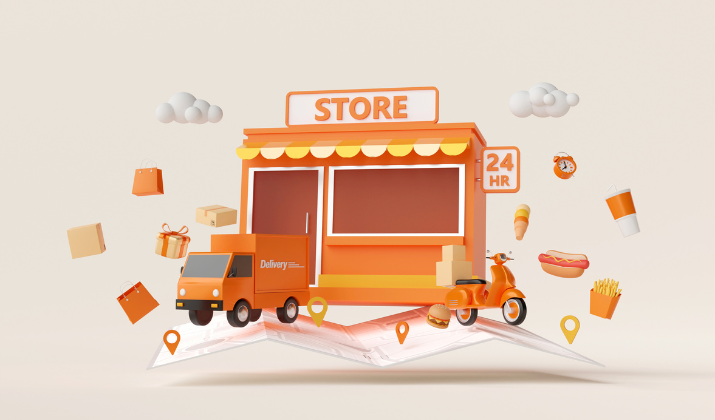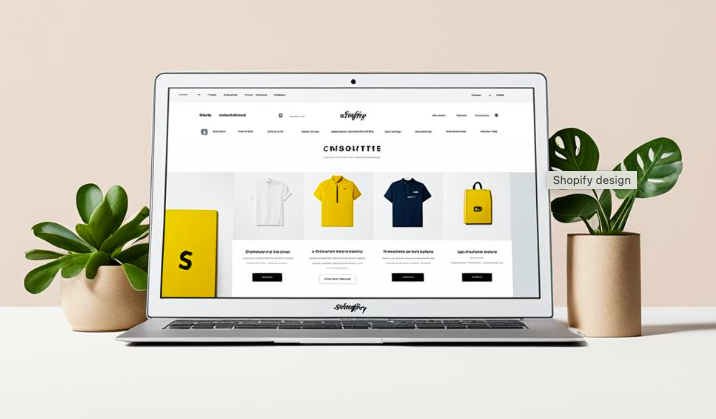Are you torn between Sellfy and Etsy, two prominent ecommerce platforms, wondering which one will best suit your online business?
Which platform offers the features, pricing, and support you need to successfully sell your digital products, handmade goods, or other offerings?
In this comprehensive article, we’ll delve into the key differences between Sellfy and Etsy to help you make an informed decision that aligns with your specific needs and goals.
Let’s begin.
Overview
Sellfy
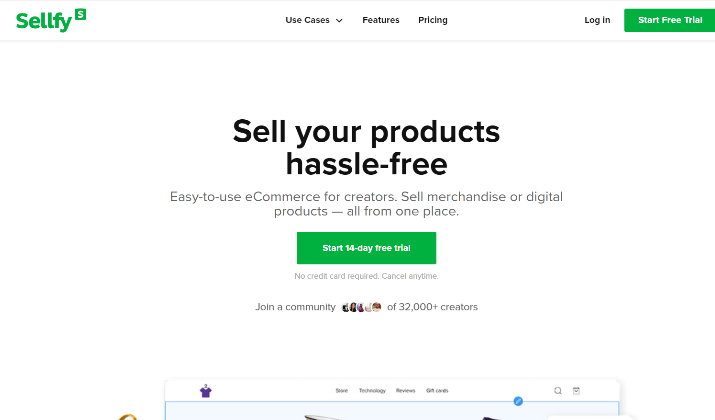
Sellfy is a software-as-a-service (SaaS) solution that allows you to easily create an online storefront to sell digital products, print-on-demand items, and subscriptions.
Here are the key features of Sellfy:
- Sell digital products & subscriptions – Sellfy is ideal for selling ebooks, music, videos, artwork, and other digital content.
- Beautiful storefront in 5 minutes – It enables you to create and customize a fully-fledged ecommerce website in just 5 minutes using their simple tools.
- Payment options you can trust – The platform integrates with payment processors like PayPal and Stripe to handle online transactions and instant payouts
- Built-in marketing features – Sellfy offers email marketing, discount codes, upsells, Facebook Messenger Live Chat, and more to help you engage customers and grow sales.
- Powerful analytics – The Sellfy dashboard provides insights into your best selling products, traffic sources, and overall store performance.
- Embed everywhere – You can embed Sellfy buy buttons, products or your entire store on your website, social media pages, YouTube videos, and more.
- Secure hosting – Sellfy stores product files securely and tracks download links, while providing buyers with payment protection and refunds.
- GDPR compliant – It meets GDPR requirements to protect customer data, with tools like PDF stamping and SSL encryption.
Sellfy is an intuitive, user-friendly platform ideal for creators and small businesses looking to quickly start selling online without technical complexity.
Also read: Sellfy Review, Pros And Cons
Start selling in 10 mins. No Transaction fees. No hidden costs.
Try Sellfy for free!
Etsy
Etsy, on the other hand, is an online marketplace primarily used for selling handmade items, vintage goods, and craft supplies.
Here are its key features:
- Community Connection and Customer Response: Etsy connects users to a community of like-minded artisans and buyers, facilitating easy communication through private messaging.
- Internal Analytics Empowering Sellers: It provides sellers with analytics tracking orders, revenue, and customer interactions, simplifying the process compared to setting up an external analytics platform.
- Search Engine and SEO Options: The platform offers SEO optimization tools, allowing sellers to optimize listings for better visibility and offers promoted listings for boosting visibility.
- Feedback for Improvement: Sellers on Etsy can view feedback on their items to enhance their products and services.
- Unique and Creative Goods: Etsy is a global marketplace for unique and creative goods, offering a wide range of handcrafted items, vintage treasures, and special products.
- Active Community: It has 1.9 million active sellers and 31.7 million active buyers, creating a vibrant community of creative entrepreneurs and shoppers.
- Guiding Principles: Etsy is committed to sustainability, embracing differences, minimizing waste, and leading with optimism, fostering a community-driven approach to commerce.
These features collectively contribute to Etsy’s success as an ecommerce platform that supports independent artists, crafters, and collectors in showcasing and selling their unique products.
While Sellfy gives you more control over your store’s branding and customization, Etsy provides access to a large existing customer base on its platform.
This makes Sellfy a more suitable choice for sellers who want to create a unique and branded online presence, while Etsy is ideal for those looking to tap into a well-established marketplace for handmade and vintage goods.
Check out: Shopify vs Flipkart
Customization Options
Sellfy
When it comes to customizing your online store, Sellfy offers significantly more flexibility than Etsy.
With Sellfy, you have the ability to register a custom domain, choose from a wide variety of professional-looking themes, and utilize powerful page builders to create a truly unique and branded storefront.
This gives you the freedom to craft a cohesive visual identity that aligns with your business and resonates with your target audience.
- Matching ‘Buy Now’ buttons to your Sellfy storefront: You can customize the color, text color, corner shape, and outline of the Buy Now buttons on your website for a consistent look and feel across your site and Sellfy store.
- Creating custom ‘Buy Now’ buttons: You can insert any image, link, or button as a Buy Now button on your website by adding the “sellfy-buy-button-custom” class to the generated HTML embed code.
- Customizing your Sellfy store: You can change the background color, text color, and shape of product thumbnails. You can also adjust the number of product columns and products per page or edit the footer size, background color, and text color.
- Uploading your logo, banners, and favicons: While you cannot fully customize Sellfy themes, you can add your own logo, banners, and favicons to personalize your store.
Sellfy offers limited flexibility compared to building a fully custom ecommerce site. The platform prioritizes ease of use over extensive customization options.
Explore: Ecwid vs Prestashop
Start selling in 10 mins. No Transaction fees. No hidden costs.
Try Sellfy for free!
Etsy
- Personalization feature: Etsy’s Personalization feature allows sellers to add a personalized touch to their products by enabling customers to select from different options or provide input for customizations. This could include adding custom messages, monogramming, engraving, custom artwork, or special touches like ribbons or charms.
- Listing Variations: Sellers can offer variations of their products within a single listing, such as different colors, sizes, or dimensions. Up to two types of variations can be specified per listing. Sellers can vary the price, quantity, and SKU for each variation.
- Custom Listings: In addition to pre-defined variations, sellers can create custom listings for buyers who want a unique product. However, these custom variations cannot be filtered in Etsy’s search results.
This platform provides a more limited customization experience. Your Etsy shop will predominantly follow the overall design and layout of the Etsy platform, with limited options for branding and personalization.
While Etsy’s streamlined approach may be appealing for some sellers, it can make it challenging to stand out from the crowd and establish a distinct brand presence.
Read this too: Sellfy vs Podia
Marketing Tools
Sellfy
Sellfy offers a range of built-in marketing tools to help creators and entrepreneurs effectively promote and sell their products online. These include:
- Email Marketing: Sellfy’s email marketing tool allows you to generate leads, reach out to your audience, and maintain profitable relationships with customers. You can create email campaigns, automate sequences, and segment your lists to target specific customers.
- Upselling: The upselling feature enables you to offer exclusive deals or related products to customers during checkout, helping increase your average order value by 10-30%.
- Discounts and Sales: You can run promotional campaigns and offer discounts to drive sales, such as time-sensitive deals or pay-what-you-want pricing. Discount codes are easy to create and can be shared on social media or in email campaigns.
- Social Media Integration: Sellfy makes it simple to promote your products on social media by providing shareable links to your store, product pages, and individual items. You can include these links in your Instagram bio, Facebook posts, YouTube video descriptions, and more.
- Analytics and Tracking: Sellfy’s built-in analytics provide insights into your store’s performance, allowing you to track sales, monitor traffic, and optimize your marketing efforts. You can also integrate with Google Analytics and use Webhooks to further monitor your store’s activity.
These powerful marketing tools make Sellfy an excellent platform for creators and entrepreneurs looking to sell products online and grow their businesses.
Also read: Shopify vs Meesho
Etsy
Marketing tools on Etsy enable sellers to promote their products effectively and optimize their shops. Here are some key tools:
- EtsyHunt: A comprehensive tool covering market research, competitor research, keyword analysis, listing optimization, reviews analysis, and Etsy Fee & Profit Calculator.
- eRank: Primarily for Etsy SEO, offering functions like keyword analysis, listing optimization, and shop analysis.
- Marmalead: A powerful Etsy SEO tool that collects real-world search data to suggest popular keywords and improve SEO performance.
- SellerMarketingTool: An automation, marketing, and management platform designed for small and large Etsy shops, offering features like product catalog generation, social media sharing, and automation of various marketing tasks.
- Pixelcut: A smartphone app designed for taking great product photos, removing backgrounds, adding text, stickers, and resizing photos for Etsy listings.
- Etsy on Sale: An online platform for scheduling promotions in advance, automating changes to Etsy listings, and managing sales events efficiently.
- Handmade Newsletter: A service for setting up personalized opt-in subscription pages for Etsy stores to send out email newsletters to potential buyers.
- All Hashtag: A free keyword tool for generating relevant hashtags to reach a larger audience on social media platforms like Instagram, Twitter, and Pinterest.
These tools cater to different aspects of marketing on Etsy, from SEO optimization to product photography and email marketing.
By utilizing these tools effectively, Etsy sellers can enhance their visibility, attract more customers, and boost sales on the platform.
Check out: Shopify vs Shopee
Start selling in 10 mins. No Transaction fees. No hidden costs.
Try Sellfy for free!
Integrations
Sellfy
- Integrately: Integrately is a one-click integration platform that allows seamless integration of Sellfy with numerous apps, enabling users to automate tasks without technical skills.
- Printful: By integrating Sellfy with Printful through Integrately, users can automate various actions such as order creation, fulfillment, and cancellation, saving time and money.
- Stripe: Sellfy integrates with Stripe, a leading online payment platform, allowing users to handle online payments efficiently and securely.
-
ActiveCampaign: Connecting Sellfy with ActiveCampaign enables users to add e-commerce customers to ActiveCampaign for personalized communication, segmentation based on purchase data, and targeted marketing campaigns.
These integrations offer users a wide range of functionalities, from automating order processes to enhancing marketing strategies, making Sellfy a versatile platform for digital product sales.
Check out: Shopify vs Wix
Etsy
There are several integration options available for Etsy sellers to connect their Etsy shop with other apps and services:
- Direct Etsy Integrations: Some examples of direct integration include print-on-demand services like Teelaunch, Printful, and Printify to automate product fulfillment, accounting software like QuickBooks or Xero to sync financial data, and Analytics tools like Google Analytics or Adobe Analytics to track sales.
- Third-Party Integration Platforms: If an app does not offer a direct Etsy integration, you can connect it via an API or third-party integration platform like Appy Pie Connect, IFTTT or Tray.io.
- Etsy API: For more advanced integrations, you can use Etsy’s API to build custom apps that interact with Etsy’s data and features. The Etsy API provides an interface to access public profiles, shops, listings, orders, and more.
Etsy offers a range of integration options to help sellers automate workflows, sync data, expand their reach, and gain insights to grow their business. The best option depends on your specific needs and technical capabilities.
You might find this useful: Shopify vs Prestashop
Pricing
Sellfy
Sellfy offers a range of pricing plans to cater to diverse levels of sellers. These plans include:
- Starter Plan: Priced at $29 per month or $22 per month if billed annually, this plan is ideal for beginners, with an annual sales limit of up to $10,000. It includes unlimited products, digital/subscription product support, custom domain connection, and email marketing.
- Business Plan: This plan costs $79 per month or $59 per month if paid yearly. It is suitable for growing businesses, with an annual sales limit of up to $50,000. It offers everything in the Starter Plan plus product upselling, cart abandonment recovery, affiliate marketing, removal of Sellfy branding, and store design migration assistance.
- Premium Plan: Priced at $159 per month or $119 per month if billed annually, this plan has been designed for high-volume businesses, with an annual sales limit of up to $200,000. It includes all Business Plan features along with product migration service and priority support.
Start selling in 10 mins. No Transaction fees. No hidden costs.
Try Sellfy for free!
Etsy
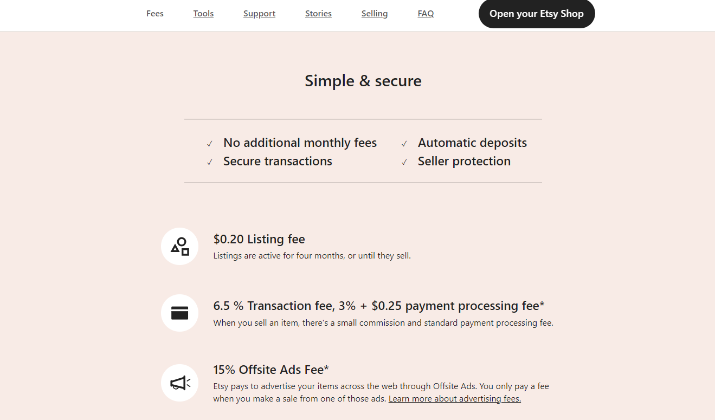
Etsy’s pricing structure involves various fees for sellers. When listing an item, there is a flat fee of $0.20 per listing, which also applies to auto-renewed listing.
Additionally, Etsy charges a 6.5% transaction fee for each sale, calculated based on the total order amount, including shipping and gift wrapping costs.
Sellers using Etsy Payments incur a payment processing fee of 3% of the total sale price plus $0.25. Optional fees like Etsy Ads and Pattern charges offer additional advertising and customization features.
It’s important to note that Etsy’s pricing model allows sellers to set their own prices, but they need to consider these fees to ensure profitability and competitiveness in the market.
Also read: Ecwid vs BigCommerce
Customer Support & Resources

When it comes to starting and growing an online business, reliable customer support and access to educational resources can be crucial. In this regard, Sellfy and Etsy offer different approaches to assisting their users.
Sellfy
Sellfy prides itself on providing 24/7 live support, ensuring you can get the help you need whenever it’s required.
In addition, the platform offers a comprehensive knowledge base and active community forums, where you can find answers to your questions and connect with other sellers.
This level of support can be invaluable, especially for those new to the world of e-commerce.
Etsy
Etsy provides customer support through various channels, including email and community forums.
However, the availability and responsiveness of their support team may vary, which could be a concern for some sellers who require timely assistance.
Etsy’s educational resources are also primarily focused on the broader Etsy community, rather than offering in-depth guidance on running a successful online store.
Explore: Shopify vs Shoptet
Sellfy vs Etsy – Which is Better?
After carefully analyzing the key differences between Sellfy and Etsy, the better choice for your online business ultimately depends on your specific needs, goals, and the type of products or services you wish to offer.
If you’re primarily selling digital products, such as ebooks, graphics, or software, Sellfy’s robust features and customization options make it a stronger contender.
With Sellfy, you can create a branded online storefront, leverage advanced selling tools like email marketing and upsells, and enjoy a more straightforward pricing structure with no transaction fees.
However, if you’re focused on selling handmade goods, vintage items, or craft supplies, Etsy’s large existing customer base and its reputation as a premier destination for such products may make it the better choice.
Etsy also provides a user-friendly setup process and various tools for managing orders, reviews, and customer communication.
Both Sellfy and Etsy offer compelling e-commerce solutions, and the platform that best aligns with your goals and preferences will be the better choice for your online business.


